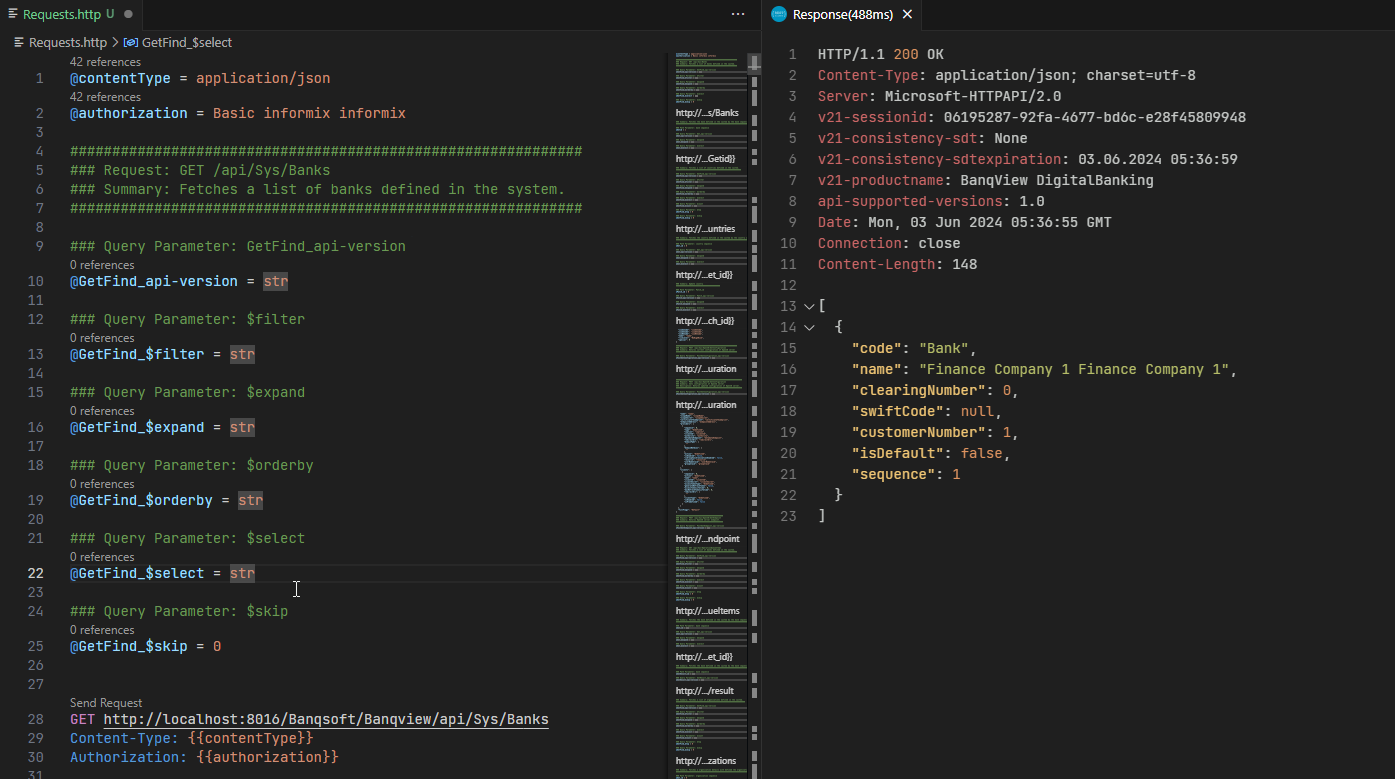Automating REST API Testing with HttpGenerator
The httpgenerator is a .NET global tool that generates .http files from OpenAPI (Swagger) specifications. The .http file format was popularized by the REST Client extension for Visual Studio Code and is also supported by JetBrains IDEs and Visual Studio. This tool simplifies and automates testing of REST APIs by generating ready-to-use HTTP request files.
Installation
You can install httpgenerator via the .NET CLI as a global tool from NuGet.org:
1
dotnet tool install --global httpgenerator
Usage
The basic usage of httpgenerator is straightforward:
1
httpgenerator [URL or input file] [OPTIONS]
Examples
Here are some examples demonstrating how to use httpgenerator:
1
2
3
4
5
6
7
8
9
10
11
12
13
14
15
16
17
# Generate .http files from a local OpenAPI JSON file
httpgenerator ./openapi.json
# Specify the output directory
httpgenerator ./openapi.json --output ./http_requests/
# Generate a single .http file containing all requests
httpgenerator ./openapi.json --output-type onefile
# Generate .http files from a remote OpenAPI specification
httpgenerator https://petstore.swagger.io/v2/swagger.json
# Override the base URL in the generated requests
httpgenerator https://petstore3.swagger.io/api/v3/openapi.json --base-url https://petstore3.swagger.io
# Add an authorization header to all requests
httpgenerator ./openapi.json --authorization-header "Bearer [JWT]"
Supported Options:
--output [directory]: Sets the output directory where the.httpfiles will be saved.--output-type [multiple|onefile]: Specifies whether to generate multiple.httpfiles (one per endpoint) or a single file with all requests.--base-url [URL]: Overrides the base URL defined in the OpenAPI specification.--authorization-header [VALUE]: Adds a specified authorization header to all generated requests.
Benefits
Using httpgenerator offers several advantages:
- Automation: Automatically generate HTTP request files from your API specifications, reducing manual effort.
- Consistency: Ensure that all API endpoints are tested consistently using standardized request formats.
- Efficiency: Quickly update your test requests when the API changes by regenerating the
.httpfiles. - Integration: Works seamlessly with popular IDEs that support the
.httpfile format, enhancing your development workflow.
Example Output
The image above shows an example of generated HTTP requests in a .http file, ready to be used within your IDE.
Conclusion
The httpgenerator tool is a valuable asset for developers working with RESTful APIs. It simplifies the process of creating HTTP requests for testing by leveraging your existing OpenAPI (Swagger) specifications. By automating this step, you can focus more on development and less on the repetitive task of crafting HTTP requests.
For more information, visit the httpgenerator GitHub repository.
